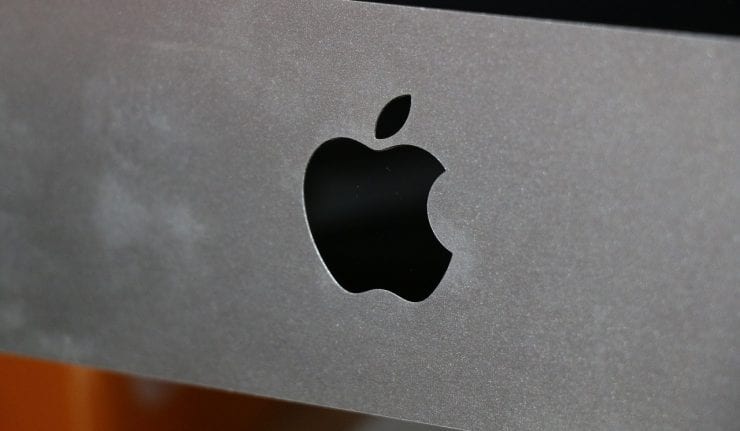I had a chance to review the investment portfolio of an older relative last week.
I was shocked to see that she had a whopping 27% of her retirement portfolio in a single stock. That’s not the kind of bet size you see in your average 78-year-old retiree’s portfolio.
The stock was none other than the world’s most valuable company, Apple Inc. (AAPL). Keeping 27% of your portfolio in a single stock breaks the conventional rules of portfolio diversification.
Yet, it’s easy to see how she got into this position.
As it turns out, she has held Apple stock since it came out with the first iPhone.
Over that period, Apple’s stock has risen from less than $10 to about $175 today.
That’s an average annual rate of return of just under 33% per year — a better performance than George Soros in his prime.
Yet, her investment strategy was both simpler and more straightforward than that of the world’s best speculator: “Never sell Apple stock.”
The Secret of Apple’s Success
Reviewing her portfolio also got me thinking about why Apple’s stock has been so successful.
Sure, it’s partially the brand, the innovation, the product design and Apple’s ecosystem that lock in Apple users like me.
But as I thought more about it, I realized that Apple’s most significant single asset isn’t on its balance sheet.
Apple’s products, particularly the iPhone, are more like a drug than a typical consumer product. The company’s most significant edge is that the iPhone is an addiction.
The Global Smartphone Addiction
When Steve Jobs developed the iPhone, his goal was “to make a small dent in the universe.”
Most of us would agree Jobs succeeded.
A scant 10 years after the first iPhone’s release, over half the population on this “pale blue dot” floating in space called Earth has a smartphone.
Since Apple launched the iPhone over a decade ago, Apple has sold well over one billion iPhones — about six of them to me.
On average, Apple generates 60% to 70% percent of its revenues from the iPhone. And because of iPhones’ premium price point, Apple captures between 80% and 100% of global smartphone profits.
Meanwhile, a Gallup poll in 2015 found that 52% of iPhone owners collectively said: “can’t imagine life without my smartphone.”
The Financial Times recently profiled a pair of British 13-year-old iPhone users. As one said, “Me and my phone, we are best friends, I’m closer to my phone than family… It’s the first thing I look at in the morning, and the last thing at night.”
Sound familiar?
Here’s how neuroscientist Adam Gazzaley of the University of California, San Francisco, explains the success of smartphones:
“We are information-seeking creatures… Today’s digital tools give us unprecedented exposure to information that doesn’t wait for you to seek it out; it seeks you out… That pull is nearly irresistible.”
Today, we know the brain is plastic, that is, it can change its shape in response to outside forces.
London cab drivers grow the hippocampi of their brains after they memorize “the Knowledge” – a detailed map of London streets. Musical training also changes your brain’s physiology. As it turns out, using smartphones has the same effect. They are literally reshaping our minds.
Are Smartphones the New Nicotine?
We all know the tobacco industry sells an addictive product. If you are a smoker, your craving for nicotine is wired into your brain.
So just how does nicotine work?
When you smoke a cigarette, the nicotine absorbs into your blood. It then stimulates your adrenal glands to release the hormone epinephrine (adrenaline). Epinephrine, in turn, increases your blood pressure, breathing, and heart rate. Much like cocaine and heroin, nicotine increases your levels of the chemical messenger dopamine. Dopamine, in turn, affects parts of the brain that control reward and pleasure.
So what does this have to do with the iPhone?
As it turns out, dopamine is the same chemical “hit” you get that compels you to and over 1 billion others on the planet to get on your smartphone and check your Facebook page every day.
As one expert put it: “They are the same circuits that make people seek out food, comfort, heat and sex. It is based on reward-based behavior that activates the brain’s dopamine pathways.”
How Smartphones Hurt You
Critics like Nicholas Carr suggest that smartphones literally “hijack” your mind.
When a smartphone rings but you can’t pick it up, your blood pressure spikes and your pulse quickens.
When you bury your head in your iPhone on the subway or a bus or a coffee shop, your smartphone is destroying your posture.
The blue light your smartphone emits keeps you up at night. One study found caffeine in a double espresso has less impact on your sleep than staring at an iPhone before bed.
According to one study, smartphones cause your attention span to plummet to levels below that of a goldfish.
Smartphones even carry more germs than a toilet seat.
Is Apple the New Tobacco?
On its face, to compare smartphones to nicotine seems absurd.
After all, smoking causes cancer, heart disease and respiratory illnesses which are fatal. This year, 4 million will die as a result of tobacco use. By 2030, 10 million will perish from the same cause.
Even at their worst, iPhones don’t kill — though their misuse can cause fatal accidents.
Still, there are disturbing parallels between the strategies of big tobacco companies and squeaky-clean tech companies like Apple. Tobacco companies design cigarettes to make tobacco smoke smoother, less harsh and more appealing to new users.
Tech companies, whether hardware manufacturers or social media sites, work hard to keep their users addicted. Snapchat, Instagram and Facebook now take up five hours of the average U.S. consumer’s day, mostly while on a smartphone.
Is there an ethical dilemma about investing in stocks that exploit people’s psychological vulnerabilities?
Apple and Facebook and Google claim that they are just giving users what they want. After all, that’s what capitalism is all about. Apple’s iPhones are merely the most profitable technological vehicle — the “picks and shovels” — of this technological gold rush.
Critics point out you could say the same thing about tobacco companies and drug dealers.
Where do I come down on this debate? I believe in the notion of enlightened self-interest. Smartphones offer a service, and it is my self-interest and choice to use an iPhone.
At the same time, I am convinced that Apple’s enlightened self-interest is not likely to be the same as my own. And I am sure this is having an impact on my life in ways that I am unaware.
While I wouldn’t compare the dangers of the iPhone to the deadly consequences of nicotine addiction, the addictive aspects of smartphones make the comparison more valid than you first may think.
Finally, what do I think about Apple’s stock?
Apple is unlikely to rise 18-fold over the coming decade as it did over the past 10 years or so. Any such rise would make its market cap close to the size of U.S. gross domestic product (GDP) today. The chances of that happening are close to zero.
Still, once you understand that Apple’s iPhone is literally addictive, Apple is a hard stock to sell.
So enjoy the relentless rise in Apple’s stock.
It is genuinely addictive.
In case you missed, I encourage you to read my e-letter from last week about the lessons you could learn from the 50-year career of a master investor.




